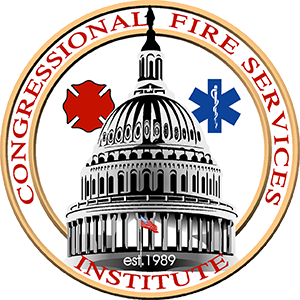Congress Approves Six-Week Continuing Resolution, Includes Disaster Reforms and Other First Responder Provisions
(February 9, 2018) – The House and Senate have approved a six-week continuing resolution to avoid a potential government shutdown. The measure, which includes a two-year agreement on spending-caps, is the fifth continuing resolution Congress has approved as both chambers continue to struggle with finalizing a funding package for Fiscal Year 2018.
In addition to maintaining funding for the operations of the federal government through March 23rd, the continuing resolution includes several legislative provisions of importance to the nation’s fire and emergency services. H.R. 1892, the Honoring Hometown Heroes Act, is the underlying legislation the continuing resolution was attached to. The bill amends the U.S. Flag Code, affirming the ability of state governors, as well as the mayor of the District of Columbia, to order the lowering of the United States flag to half-staff in the event of the death of a first responder in the line- of- duty. The Honoring Hometown Heroes Act was originally introduced in the House by Congressman John Larson (CT-1) and in the Senate by Senator Jon Tester (MT).
In addition to containing provisions to honor fallen public safety officers, the continuing resolution also makes significant reforms to federal disaster response by allowing the federal cost share for certain disaster assistance to be increased from 75 to 85 percent if states take steps to make themselves more resilient against disasters – including the adoption and enforcement of current building codes. These reforms are a key component of H.R. 4460, the Disaster Recovery Reform Act, first introduced by Congressman Lou Barletta (PA-11) on November 28, 2017.
Additionally, the continuing resolution extends the Medicare Ambulance Add-On payments for five years. These payments provide an additional 2%, 3% or 22.6% payment for transportation of Medicare patients from urban, rural and super-rural jurisdictions.
